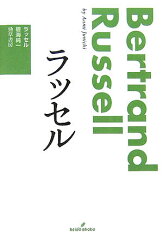バートランド・ラッセル(著)『産業業文明の前途』序文
* 出典:バートランド・ラッセル(著),塚越菊治(訳)『産業文明の前途』(早稲田大学出版部,1928年4月 9+5+421p. 19cm.)<* 原著:The Prospects of Industrial Civilization, in collaboration with Dora Russell.
London; Allen & Unwin, 1923. 283 pp. 19 cm.)
|
序文(1923年5月10日) |
| ||||
この書を書こうという考えは、1920年の夏、即ち共産主義が現になお強烈であり、非妥協的であった当時、私たち(B.ラッセルとD.ブラック)がボルシェヴィーキのロシヤを別々に経験したことから、及びその経験の直後に相携えて支那(中国)へ旅したことから思い立たれたのであった。
私たちは、ドイツ及びチェコスロヴァキヤのある著者たちも結論したように、現代の重要なる事実は、資本主義と社会主義との間なる闘争ではなくて、産業文明と人間性との間なる闘争であるということを結論した。凡そ生存の経済的新様式は、それと共に生活に関する新たなる見解を持ち来たす。その新見解をしてほしいままに支配的勢力を張り拡げて、遂に人間的価値を排斥するに至らしめないためには、吾々はその新見解を分析し、そして適当に抑圧する必要がある。かくの如くして、過去においては農業に対する迷信的崇敬を打破することが必要であった。その迷信的崇敬が、農業が人間の必要に奉仕させられるようになった以前には支配したのであった。近代人によって今なお抱持されている多くの偏見は、人類の発達の農業的段階もしくは、狩猟的段階さえもの遺物以外のものではない。私たちは、現代の世界における重要なる相違は、産業主義によつて生活する諸国民を、今なおもっと原始的な方法によって生活する諸民族から区別する所の相違であるということ、但し、それらの原始的方法は迅速に廃棄されつつあり、そして機械産業が地球全面に拡がりつつあるということを信ずるようになった。この見解は支那の如き1つの非産業的な国を見ることによって一層強められた。その見解はまたボルシェヴィーキの委員とアメリカのトラストの大頭株(大立者、有力者)との間なる極端なる類似によっても助勢(ママ)された。即ち、この両者はいづれも機械を機械自身のために尊重する習癖、及びその機械組織に対する支配権の把持者としての自分たちの位置を尊重する習癖の捕囚となり切った人々のように見えた。懐疑的及び分析的性向を有する人間として、また私たちが殆んど不可避だと考える機械産業に対してではなくて、機械主義的社会観に対する異端者として、私たちは、第1に、現代生活における諸種の勢力をそれらの勢力の歴史的背景に関係させて分析すること、そして第2に、機械は、これを迷信的でなく使用するならば、果して如何なる目的に役立たせ得るかを見ようと試みることを私たちの問題とした。かくの如くしてこの書は2部に別れる。その中で第1部は分析的であり、そして第2部は倫理的である。戦争は大抵の聡明な人々に、将来の最大問題は機械的組織を個人の自由及び幸幅に奉仕するように調節するにあるということを教えた。集団本能――過去における野蛮的一段階の残存物――は減却されねばならない。そして集団的複合体は、快適及び叡知を増す手段であった生活の組織をば解体せすに、解体されねばならない。主なる敵は、その総合が伝統的迷信に基づくか、使いふるした本能に基づくか、未完成の科学的知識に基づくかに拘わらず、必す早熟の総合である。この早熟の総合を見つかり次第に容赦なく指摘し、その結果として、もしそうされなかったならば維持されるであろう論理的一貫が失われようと、理想が失望の憂き目を見ようと、そんなことに頓着なくやっつけることが、歴史の如何なる時代においても、科学的精神に基づく研究者の事業であらねばならない。 この書は、書中に包含されている2人の思想を殆んど別々には指示することができないほど互いに論じ合った結果になったものである。 バートランド・ラッセル ドラ・ラッセル Carn Voel, Treen, Penzanc, May 10, 1923.
|
THE notion of writing this book arose out of two separate experiences of Bolshevik Russia in the summer of 1920, when communism was still strong and uncompromising; and of a mutual journey to China undertaken immediately after the Russian experience. Bolshevik Russia has never failed to produce a violent reaction in the spectator, either of enthusiasm or of hatred. The authors of this book, after independent observation, for they never met in Russia, were fortunate in that the fury led them in completely opposite directions, the one recoiling in disappointment, the other expanding in the delight of fresh hope and knowledge. To examine these two curiously opposite conclusions, both vehemently held, was the occupation of the six weeks journey to the East, and of the months of quiet which the gentle atmosphere of China afforded. As discussion became less inflammable, it began to appear that the chief basis for dislike was the growth of a new synthesis or orthodoxy, that sought to impose itself - in the case of the Westerner- on minds accustomed to a tradition of freedom in speech and action, and- in the case of the Russian- on characters nurtured, it is true, in a tyrannous orthodoxy, but one which was human and divine, irregular, without the clockwork discipline of the new industrial faith. Delight and enthusiasm, on the other hand, had been caused by the sight of the bare bones of modern existence, the skeleton of the philosophy underlying industrial life. The Bolshevik synthesis, though crude, suggested, by its abandonment of all traditional beliefs, the prospect of a new harmony between thought and daily life. Here in Russia, it seemed, as nowhere else in the world, existed the conception of a modern civilization.
We concluded, as some writers in Germany and Czecho-Slovakia have also concluded, that the important fact of the present time is not the struggle between capitalism and socialism, but the struggle between industrial civilization and humanity. A new economic mode of existence brings with it new views of life which must be analysed and subdued if they are not to dominate to the exclusion of human values. Thus in the past, it has been necessary to destroy a superstitious reverence for agriculture, which dominated before it was made to serve the needs of human beings. Many prejudices still held by modern people are nothing but remnants of the agricultural, or even of the hunting, stage of man's development. We came to believe that the important differences in the modern world are those which divide nations living by industrialism from those which still live by the more primitive methods, though these are being rapidly abandoned, and industrialism is spreading all over the globe. This view was reinforced by the spectacle of a non-industrial country such as China. It was helped also by the extreme similarity between the Bolshevik commissary and the American Trust magnate; both appeared as persons imbued with the importance of mechanism for its own sake, and of their own position as holders of the key to the clockwork. As persons of a sceptical and analytic disposition, and as heretics, not to industrialism, which we regard as practically inevitable, but to a mechanistic conception of society, we set ourselves the task, first, of analysing the various forces in modern life in relation to their historical background; and second, of trying to see what ends mechanism, unsuperstitiously used, could be made to serve. The book thus falls into two parts, of which the first is analytical and the second ethical. The war has taught most intelligent people that the greatest problem of the future is the adjustment of mechanical organization to minister to individual freedom and happiness. Herd instinct-relic of a more barbaric phase-- has to be diminished and herd complexes dissolved without dissolving the organization of life that has been the means of increasing comfort and intelligence. The chief enemy is always premature synthesis: whether based on traditional superstition, or on outworn instinct, or on incomplete scientific knowledge. To point to this ruthlessly wherever it is perceived, regardless of possible inconsistencies or disappointed ideals, must be the task of disinterested inquirers in any period of history. This book is so much a product of mutual discussion that the ideas contained in it can scarcely be separately assigned. B. R. D. R. Carn Voel, Treen, Penzanc, May 10, 1923. |


